Why you can trust Tom's Hardware
To read about our monitor tests in-depth, check out Display Testing Explained: How We Test Monitors and TVs. We cover brightness and contrast testing on page two.
Uncalibrated – Maximum Backlight Level
The CP7271K belongs to the elite group of monitors with FALD backlights that can deliver up to 1,000 nits brightness. To compare the ConceptD, we’ve rounded up monitors with the same backlight, the Asus ProArt PA32UCX with mini-LED, the Acer Predator X35, Acer Predator X27 and Asus ROG Swift PG27UQ. The sixth screen is Acer’s Predator CG437K, which has an edge backlight instead of a FALD one but meets the VESA DisplayHDR 1000 standard like the others.
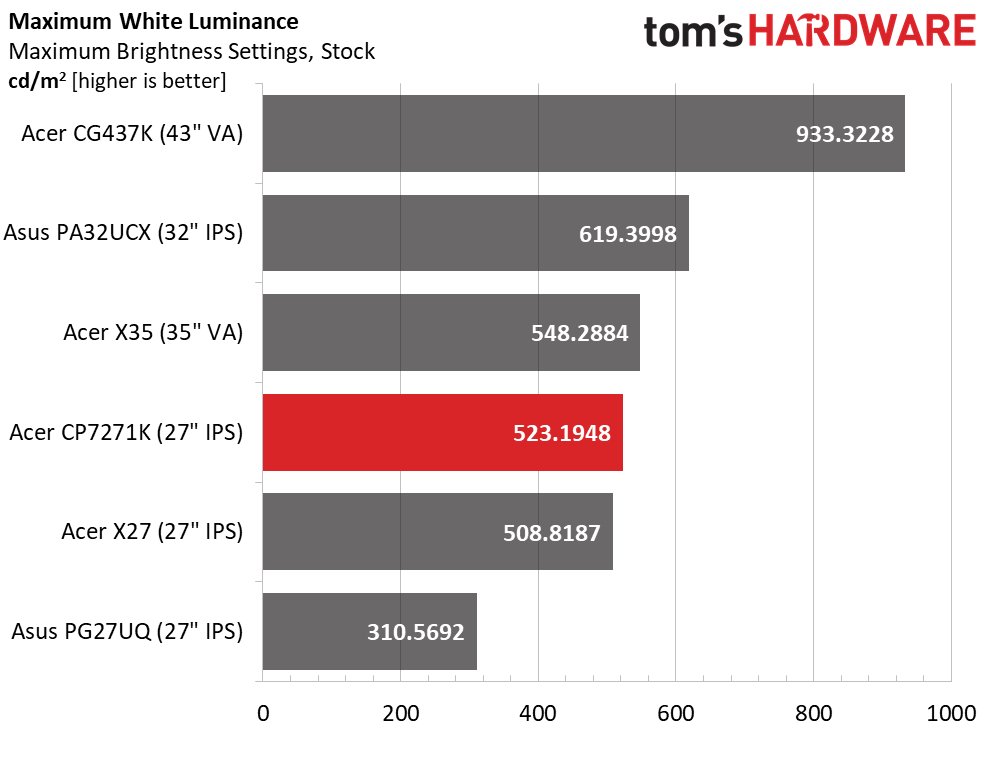
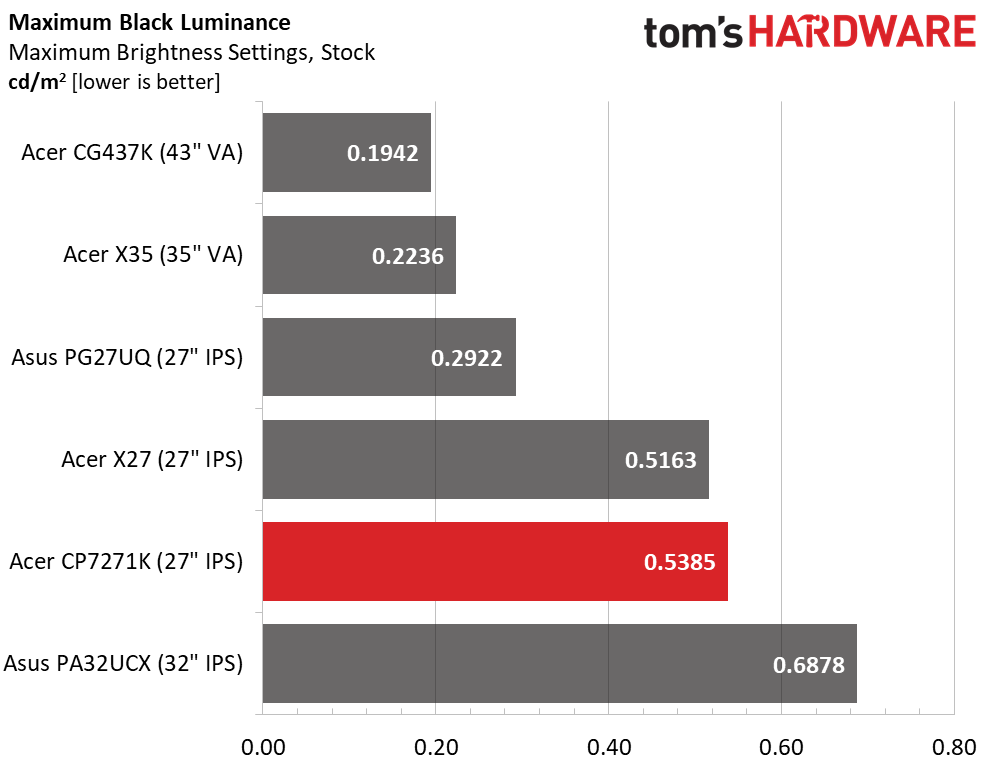
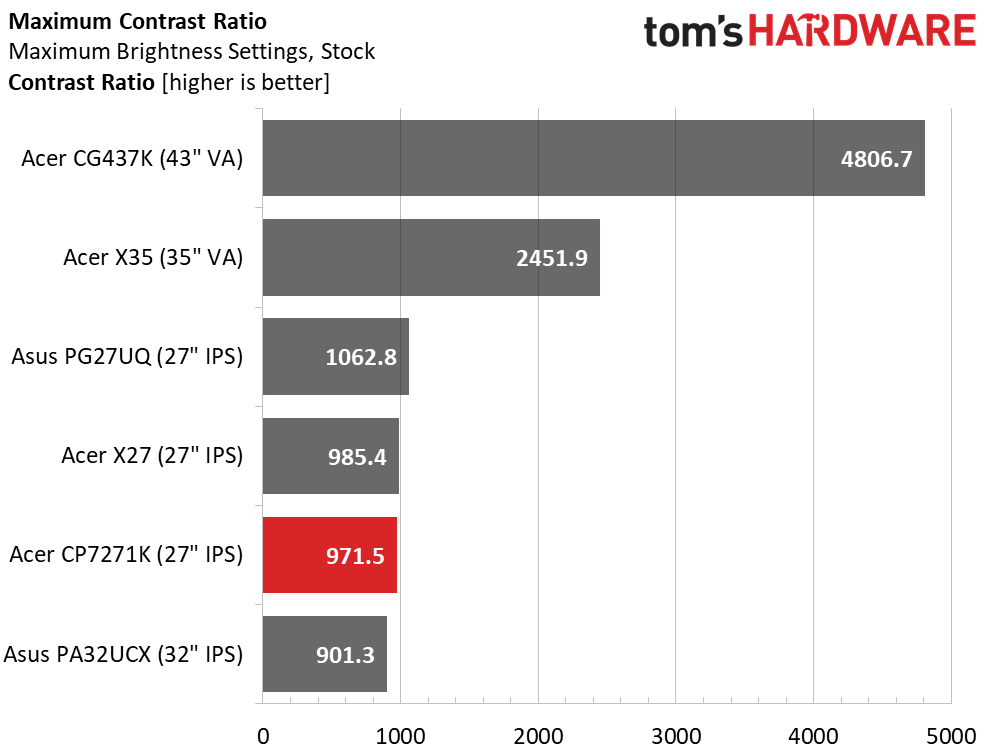
There is no great need for massive brightness with SDR content. Nonetheless, all the monitors here save the PG27UQ can hit 500 nits in SDR mode, with the CG437K exceeding 900. While this produces impressively bright highlights, the overall image will be quite intense. If you have an excessively sunny room, a 500 nit peak will be helpful but, in most environments, 200 nits is more suitable. The CP7271K is right in the middle with a healthy 523 nits.
Black levels are fairly high at the maximum backlight setting, as expected for an IPS screen. The top two displays are VA, putting them in a different league contrast-wise. In the end, the CP7271K shows dynamic range typical of an IPS monitor. Remember that these values are measured with local dimming turned off. When it’s engaged, contrast is impossible to measure because the backlight shuts off completely when a full black field (zero signal level) is displayed.
After Calibration to 200 nits
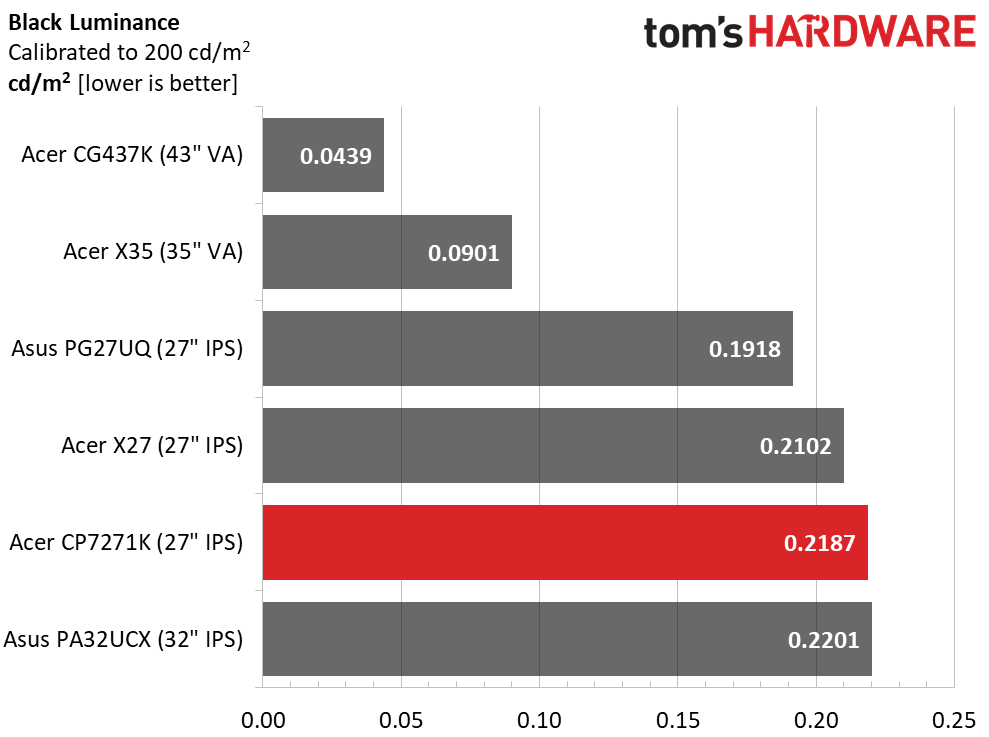
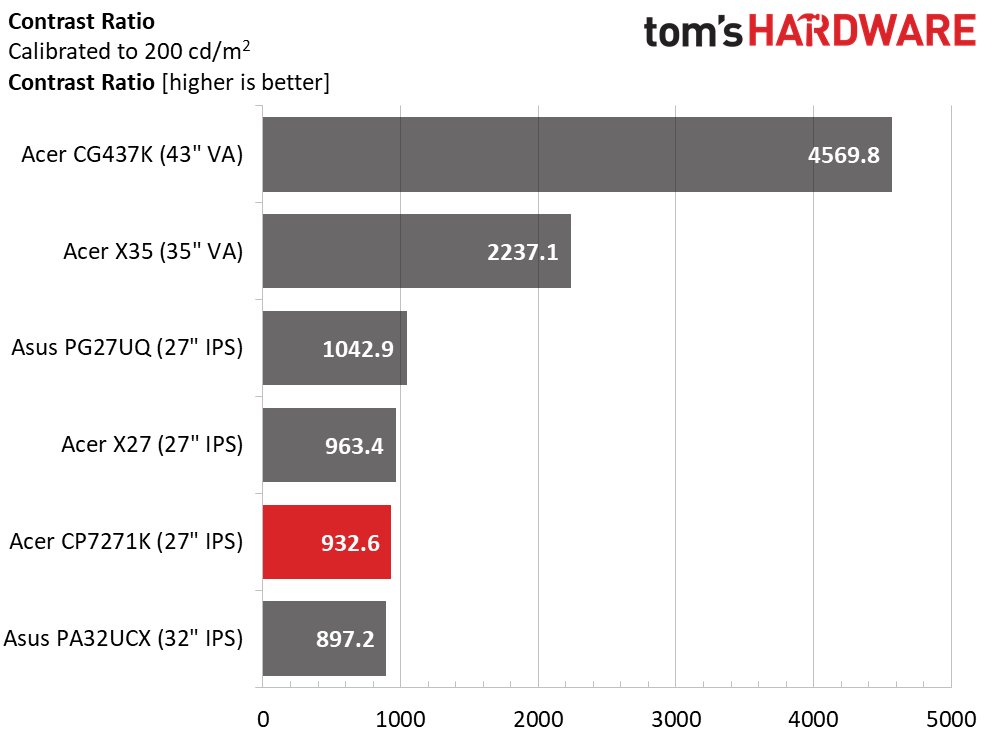
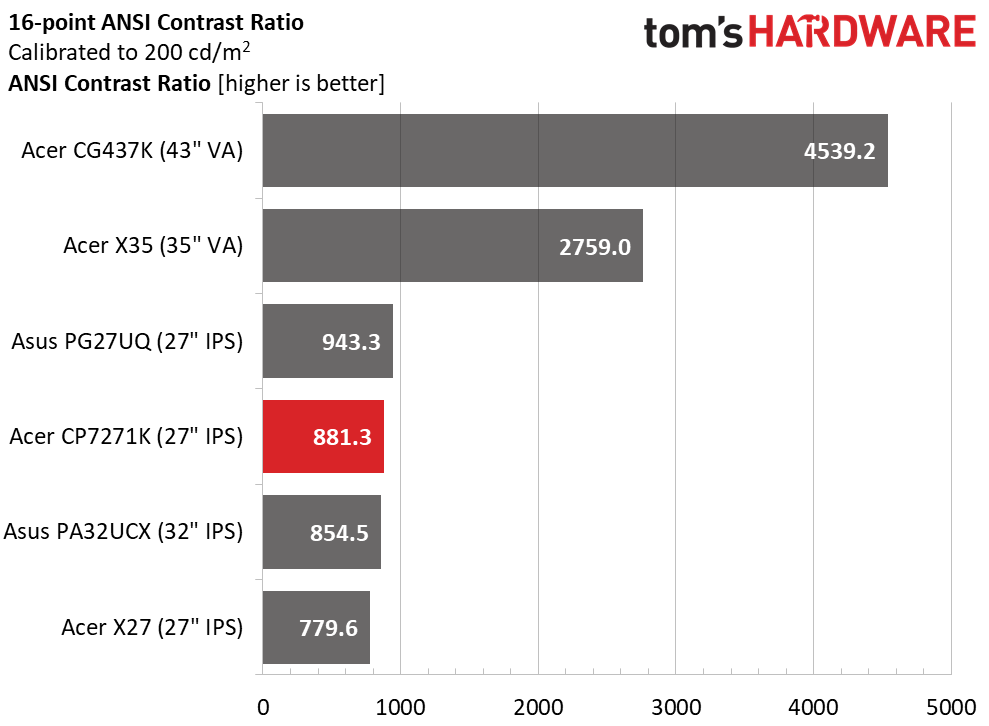
Calibration too 200 nits brightness (see our recommended settings) didn’t change the CP7271K’s contrast numbers much. Contrast took a slight hit due to our adjustments, but again, this is with local dimming off. Turning it on produced a superb image with excellent black levels and deep contrast. All the FALD screens here share that trait. The two VA monitors again topped the group. Note that the winner of the contrast contest is the CG437K, despite its edge array backlight; VA is still king.
Our CP7271K had a slight hotspot in the upper left corner, which reduced ANSI contrast slightly. It also contributed to a below average uniformity score, which we’ll talk about later. Overall though, this performance is typical of IPS-based screens with zone-dimming backlights. The ConceptD is neither better nor worse than other high-end monitors in this regard.
MORE: Best Gaming Monitors
Get Tom's Hardware's best news and in-depth reviews, straight to your inbox.
MORE: How We Test Monitors
MORE: All Monitor Content
Current page: Brightness and Contrast
Prev Page Features and Specifications Next Page Grayscale, Gamma and Color
Christian Eberle is a Contributing Editor for Tom's Hardware US. He's a veteran reviewer of A/V equipment, specializing in monitors. Christian began his obsession with tech when he built his first PC in 1991, a 286 running DOS 3.0 at a blazing 12MHz. In 2006, he undertook training from the Imaging Science Foundation in video calibration and testing and thus started a passion for precise imaging that persists to this day. He is also a professional musician with a degree from the New England Conservatory as a classical bassoonist which he used to good effect as a performer with the West Point Army Band from 1987 to 2013. He enjoys watching movies and listening to high-end audio in his custom-built home theater and can be seen riding trails near his home on a race-ready ICE VTX recumbent trike. Christian enjoys the endless summer in Florida where he lives with his wife and Chihuahua and plays with orchestras around the state.